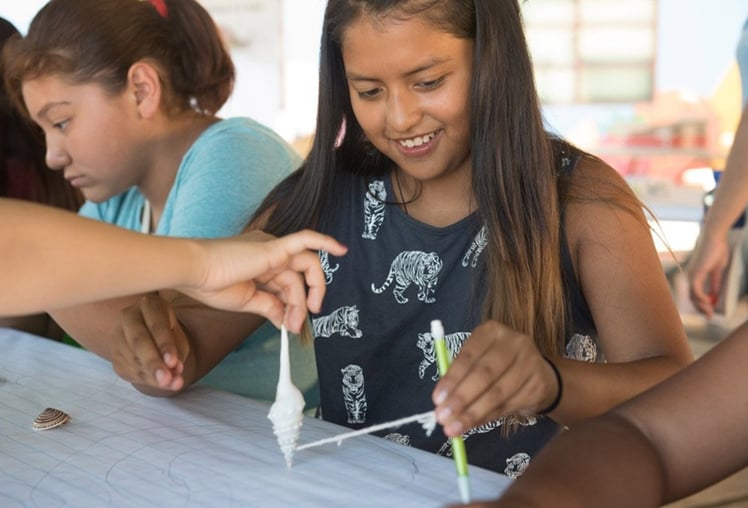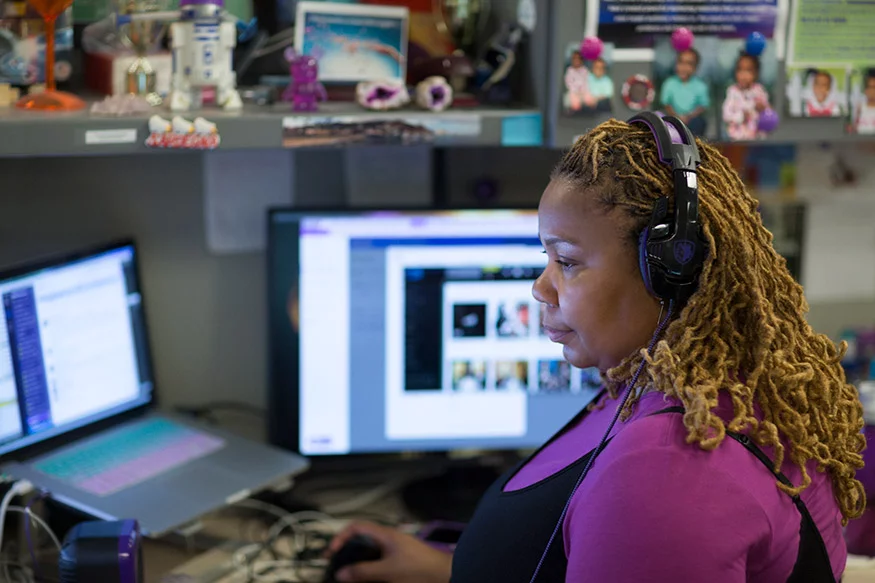
As a new grant writer at MIND Research Institute, I am sometimes asked by curious colleagues, “What do you think about working here?” What I often tell them - and what I’d like to share with you - is that MIND’s commitment to equity in education is what continues to inspire me the most.
Equity is defined as, “justice according to natural law or right, freedom from bias or favoritism.” How do fairness and impartiality apply to learning? In education, equity means making sure every student has the support they need to be successful.
Equity is vital in all fields of study, but it is especially important in STEM because careers in STEM have the power to help individuals and communities prosper. 93% of STEM careers pay above the national average, and STEM jobs are growing at twice the rate of non-STEM jobs. My colleagues and I are dedicated to providing more equitable access to learning and ensuring that math is not a barrier to student achievement.

There are three main qualities used to measure equity in education: academic support, access to resources, and outcomes. Here at MIND, I can proudly say that we work to support all of these. Nowhere are these qualities more apparent than in MIND’s response to the school closures brought on by COVID-19.
On March 14, MIND announced free access to ST Math® for schools and families through the end of the 2019-2020 school year. Recently, we extended ST Math Homeschool free access to families through December 31, 2020. The increase in program sign ups was astounding. In the first three months of free access, we welcomed over 1.86 million new students from more than 5,700 schools. We also enrolled over 32,900 new homeschool households. During the free access period, we more than doubled the 1.285 million+ students we were serving prior to our coronavirus response efforts.
This tremendous increase in new ST Math students points to the great need for quality education programs that families and teachers can easily access from home. New studies suggest that the potential for learning loss due to school closures caused by the pandemic is significant, making effective and equitable remote learning even more essential.

In April, NWEA, a nonprofit provider of assessment solutions, released projections that, “In mathematics, students may return in fall 2020 with less than 50% of typical learning gains, and in some grades, nearly a full year behind what we would expect in this subject under normal conditions.” These gaps in learning are quite concerning, but MIND’s response in providing access to ST Math for all students is helping to mitigate those learning setbacks.
Not only is expanding access important, providing the resources to support successful program implementation is equally valuable. Our team has been working tirelessly to create resources to help parents and teachers utilize ST Math effectively. These include: expanded support hotline hours, informative webinars, extensive supportive content on our website, and community forums on Facebook for parents and teachers.
Though the number of students using ST Math has grown exponentially, our staff numbers have not increased. Over the past months, I’ve witnessed colleagues accomplish incredible feats of adaptation, resource development, and human kindness. They’ve gone above and beyond to support parents and teachers, all with a shared goal of providing students with increased access to equitable learning during these uncertain times.

The feedback we’ve received this year continues to motivate our work. Here are some testimonials I’ve found particularly heartening:
Connecting with students over ST Math has now become more than just an academic exercise for our students. It now provides a therapeutic purpose as well. Of all of the programs we use, it lends itself the most for human connection.
-Mr. D. Marks, Teacher
You should have seen my students’ faces when I told them that we would not be together in class for at least a few weeks. Heartbreaking. We hugged each other and I assured them, ‘all would be well’ (I hope and pray). Then, I broke the news to them that while they were away from school, they would have complete access to their ST Math. Pure joy!
-Ms. J. Walls, Teacher
ST Math has come in incredibly handy during the COVID-19 pandemic. The kids are picking up right where they left off by completing ST Math modules at home. I cannot say enough good things about ST Math.
-Ms. K. Marciniak, Teacher
As we navigate this new educational landscape together, there is an opportunity to create a better future—one with even greater equity in education. Recently, our work was summed up perfectly by Karin Wu, MIND's EVP/Executive Director of Social Impact, “Behind all the data, we are a team of crusaders trying to make the world a better place!”
I wholeheartedly believe MIND is uniquely poised and dedicated to being part of the solution. Equity in education requires putting systems in place to ensure that every child has an equal chance for success. MIND’s programs, staff, and coronavirus response deeply reflect this commitment. I am grateful to be part of that.

Kim Williams is a grant writer at MIND Research Institute.
Comment